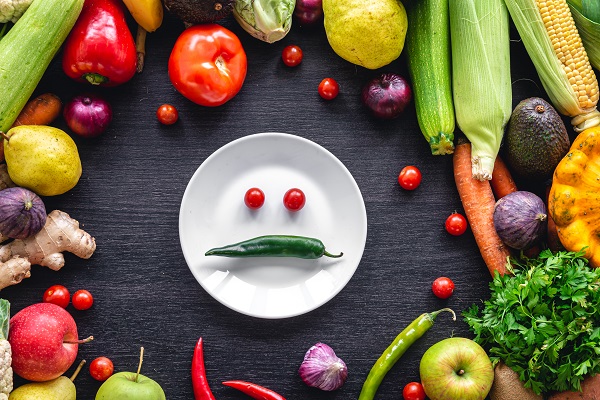Our eyes are one of the most important organs in our body, allowing us to see and experience the world around us. However, many of us take our eye health for granted until problems arise. While genetics and age play a significant role in eye health, our diet also plays a crucial role in maintaining good vision and preventing eye-related diseases.
A balanced diet rich in nutrients is essential for maintaining optimal eye health. Certain vitamins and minerals are particularly beneficial for our eyes. Let’s explore some of the key nutrients and their role in maintaining healthy eyes.
Vitamin A is an essential nutrient for good vision. It helps prevent night blindness and dry eyes. Foods rich in vitamin A include carrots, sweet potatoes, spinach, and kale. Including these foods in your diet can help maintain good vision and prevent age-related macular degeneration (AMD), a leading cause of vision loss in older adults.
Omega-3 fatty acids are another important nutrient for eye health. These fatty acids are found in fish, such as salmon and tuna, as well as flaxseeds and walnuts. Omega-3 fatty acids help protect against dry eyes and reduce the risk of developing AMD.
Vitamin C is known for its immune-boosting properties, but it also plays a role in eye health. It helps maintain the health of blood vessels in the eyes and reduces the risk of developing cataracts. Citrus fruits, strawberries, and bell peppers are excellent sources of vitamin C.
Vitamin E is an antioxidant that helps protect cells in the eyes from damage caused by free radicals. Nuts, seeds, and vegetable oils are rich in vitamin E and should be included in a healthy diet for optimal eye health.
Lutein and zeaxanthin are two antioxidants that are particularly beneficial for eye health. They are found in high concentrations in the macula, the part of the eye responsible for central vision. Lutein and zeaxanthin help filter harmful blue light and protect against AMD and cataracts. Leafy green vegetables like spinach and kale, as well as egg yolks, are excellent sources of these antioxidants.
In addition to these specific nutrients, maintaining a healthy weight and managing chronic conditions like diabetes are also important for eye health. Obesity and diabetes can increase the risk of developing eye diseases such as diabetic retinopathy and glaucoma.
It’s important to note that while a healthy diet can support good eye health, it is not a substitute for regular eye examinations. Regular eye check-ups are essential for detecting any potential issues early on and ensuring timely treatment.
In conclusion, maintaining a balanced diet rich in essential nutrients is crucial for maintaining good eye health. Including foods rich in vitamins A, C, and E, omega-3 fatty acids, and antioxidants like lutein and zeaxanthin can help protect against eye diseases and maintain optimal vision. So, let’s make conscious choices about what we eat and prioritize our eye health for a brighter future.

